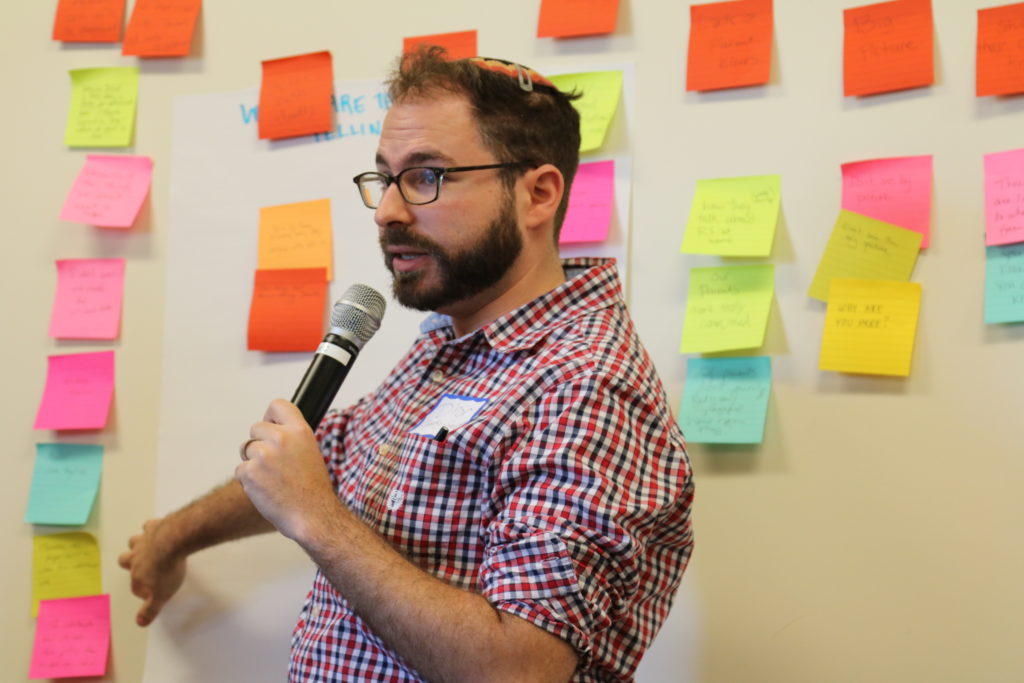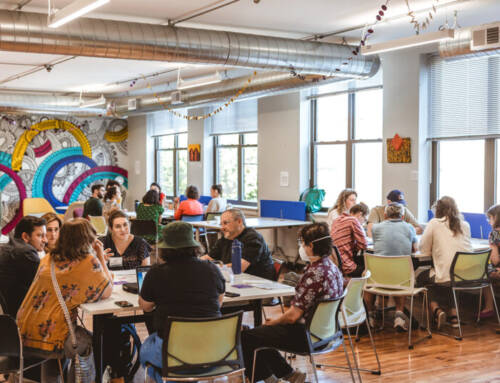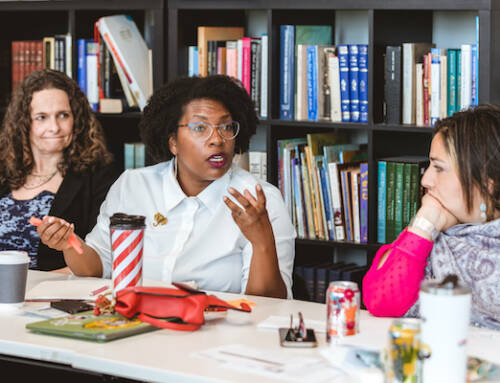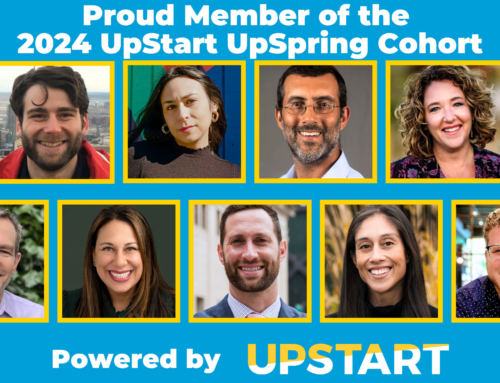by Rabbi D’ror Chankin-Gould
This piece was originally published in Anshe Emet’s newsletter, December 2017
If Moses begged Pharaoh to let the Jewish people go one time, and then walked away after he didn’t succeed, we would still be in Egypt. After the first set of tablets were broken, if we had shrugged our shoulders and given up, we would have no Torah. The only way that the Jewish people, and indeed all people, can thrive and grow, is to take sincere risks and to design a stronger future based on the wisdom we gained along the way. That philosophy is precisely the thinking which the world’s best innovators rely upon.
Over the last year, Anshe Emet has been privileged to participate in a living educational laboratory, where design thinking principles are directly applied to the challenges of synagogue-based education. Through the generosity of the Jewish United Fund, as well as the Crown Family and the Jack and Goldie Wolfe Miller Fund, a grant opportunity was offered to Chicago based synagogues, to partner with UpStart in an incredible journey called “CHIdush”, where teams of synagogue professionals and lay leaders have been enriched by coaching, resources, research, and evidence-based approaches to educational design. I have been so honored to be part of this process.
The Anshe Emet “CHIdush” team has been composed of myself, Amy Karp, and Max Handelman. Together we have partnered with amazing lay leaders: Andrea Minor, Lauren Cherynak, Anita Denes-Meador, Felix Tollinche and Brian Kurtz. We have
attended workshop after workshop, where we have been lucky enough to learn from Rob Weinberg, Rabbi Scott Aaron, Joy Wassermann, and the UpStart team. In between meetings we have been able to consult directly with a feisty, funny, and encouraging coach, named Sari Gluckin, who consistently challenges us to think outside of the box.
Our team chose the following design challenge : “How might we create pathways to Jewish life and community for families with young children?” Our realization has been that Anshe Emet has room to grow when it comes to nurturing families with two and three-year olds in particular. But just because we identified the demographic need, doesn’t mean that we knew the solution. So we experimented: we got into the sandbox, and we played.
Last year we built an advisory committee of 12 congregants representing the demographic we were hoping to learn from. These folks gather periodically to give us feedback and suggestions on how we might do better in the future. Based on the precision of their feedback, calls, and surveys, we tweaked our product over and over again.
We began by setting out to create four prototypes of what a family-based program could look like for parents along with their two and three-year olds. Our first assumption was tested: are we hitting on a real need? 20 families immediately signed up for the prototypes.Question answered! We tried some sessions during the day and others in the evening. We tried having all the parents and kids together and we also tried doing parallel education for the group separately. We tried focusing on holidays and we tried focusing on other kinds of Jewish learning. We tried emphasizing content and we tried emphasizing relationship. We tried and tried and tried. We reached out to participants to get feedback. We learned and learned and learned.
Our advisory committee suggested that we think about six contiguous sessions. They suggested that the Jewish content be centered on Shabbat and holidays. They suggested that separating parents and kids simply didn’t work. They shared that they were hungry for making new Jewish friends. They suggested we think about how to branch outside of the synagogue and into other environments. We workshopped together a variety of different ideas, and ended up with an amazing pilot, which we have rolled out this year, called “Little Builders.” Little Builders is a six-session offering for families with two and three-year old’s. Four of those sessions take place at the synagogue, while two are home hosted. The content is largely, but not exclusively, focused on the big ideas, and some of the joyous details, of the holiday of Hanukkah, and the values and traditions that go along with that. At every stage of the design, we are consciously considering not only the transmission of Jewish knowledge, but also the manner in which we will cement relationships between children and between their parents.At the conclusion of the six sessions all participants will be expected how to set up a “voluntold meet-up” where they reach out to the group and invite peers to a playdate or an outing. And we’re still learning.
This year as we enter our pilot phase, we are so lucky to be continuing our coaching from UpStart, to continue our research and feedback loops so that we constantly change and improve, and to remain open to the reality that there is more to learn and more to change. Nothing matters more than giving our children and our families deep Jewish education and connection. This demands of us to be innovative, creative, and open to constantly re-evaluating what the path to the strongest future might be.
Like our ancestors, we know that the only way to reach the Promised Land is to be willing to traverse more than one path.Our journey thus far has been blessed. May it continue to be so. Join us as we journey: there’s room for your family on this pathway!
Our purpose is to enable entrepreneurs to bring bold Jewish ideas to light. We help them reach Up to people in new ways that are meaningful, more inclusive, and create a brighter future for our Jewish community and the world we share.








